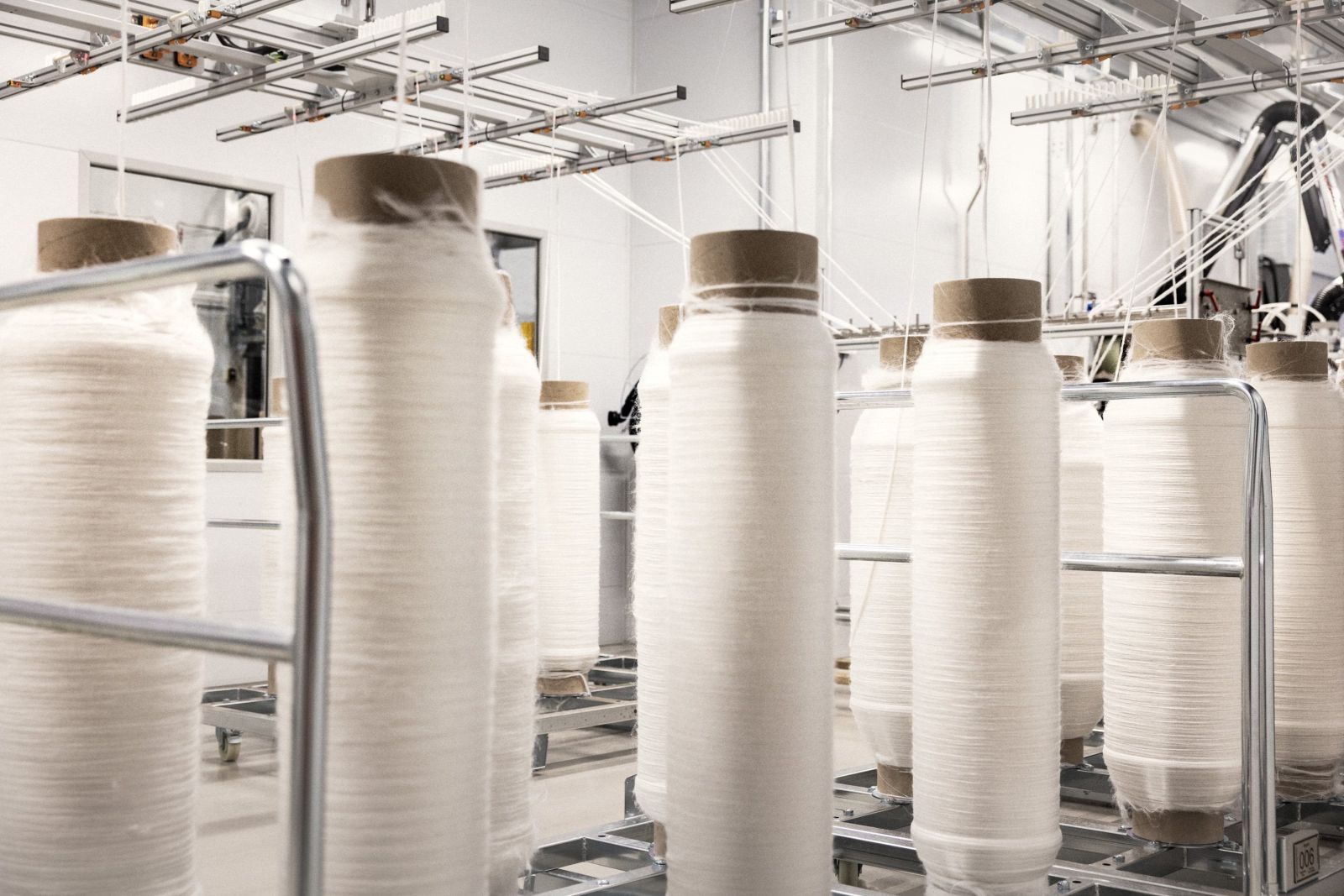SPINNOVA® fibre helps mitigate climate change
The production of our joint venture company Woodspin will help to reduce CO₂ emissions - more than it emits
Textile fibres are estimated to be the single largest contributor of greenhouse gas emissions in the fashion industry. Spinnova is at the forefront of helping brands to reduce their emissions.
When produced from eucalyptus pulp, the greenhouse gas emissions of SPINNOVA® fibre, 1.2 kg CO₂-e per kilogram of fibre produced, are 3.5 kg or 74% lower than the global average emissions of conventional cotton (4.7 kg CO₂-e/ kg of fibre).1
In addition to the low carbon footprint, the surplus heat of our joint venture Woodspin in Jyväskylä enables further emission reduction in the local district heating. The factory complex of Woodspin – inaugurated in May 2023 - will boost a highly advanced energy system. The factory runs fully on renewable electricity and uses recovered heat from the processes with the help of heat pumps. Alongside internal use, the factory provides recovered heat to the local district heating network, which reduces the emissions of the local energy producer Alva by replacing the use of fossil fuels. At the latest values, this emission reduction is 2.4 kg CO₂-e/kg of fibre.2
The excess heat sales to the local energy system means that Woodspin’s first factory will help to reduce more fossil CO₂e emissions than is caused for the fibre production – two times more to be exact.
In addition to CO₂ savings, excess heat is the best energy source from the overall environmental point of view as it reduces the need for primary energy use. Typically, industrial sites are not able to utilize their excess heat, which is directed to air or water bodies. Spinnova and Woodspin are helping to improve industrial energy systems which we need to mitigate climate change.

1 Product carbon footprint study conducted by a third-party expert following ISO 14067:2018 standard. The footprint includes CO2-e emissions associated with raw material supply, transportation of raw materials, and manufacturing of the product (cradle-to-gate). Furthermore, we have used Ecoinvent database as the source for global average emissions of conventional cotton.
2 Based on projected emissions for our joint venture Woodspin’s first commercial factory in Jyväskylä, Finland.


